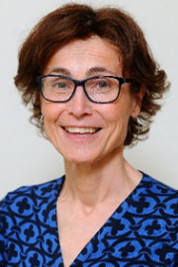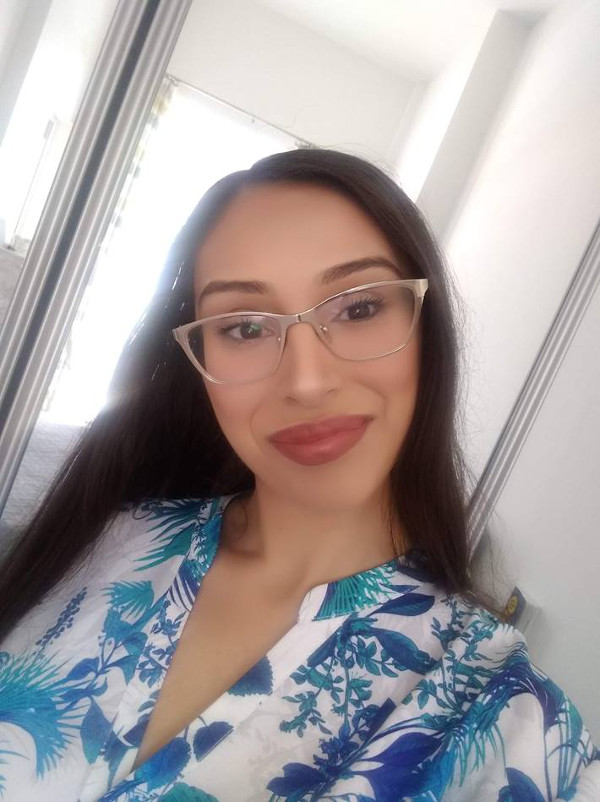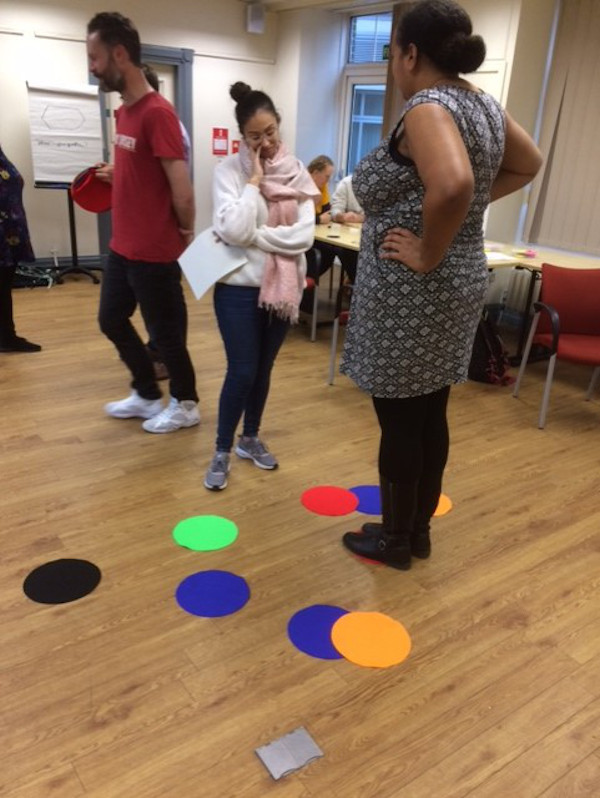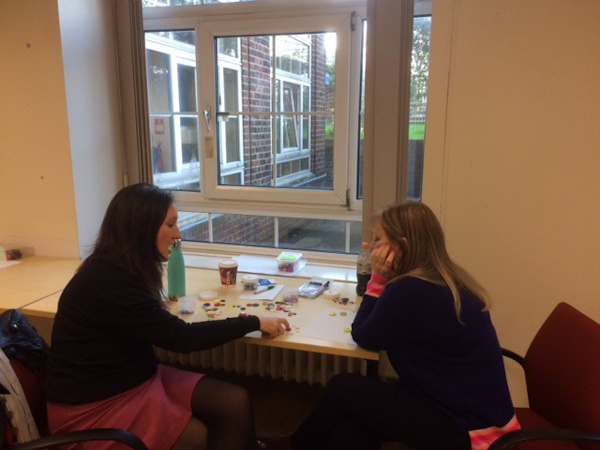Building better leaders with Horizons
Last June, senior leaders with a mix of leadership styles started their journey on the Horizons leadership programme.
Through a range of activities, the programme helps senior leaders to understand more about the way they work, their strengths and performance risks, and how they can adapt their approach to mastering cross organisational relationships and boundaries and steering fundamental change.

We speak to Anne O'Connor, leadership development consultant and programme lead for Horizons (pictured above), along with the most recent cohort to have completed the programme, to find out what they got from it and how they’ve put the experience and learning into practice.
The importance of self-awareness
Before participants join the programme, they’re asked to use Strengthscope360, a system to help them examine their approach to leadership in the round, with the aim of enhancing self-awareness.
“Self-awareness has been cited as the most important capability for leaders to develop,” says Anne. “The Strenghscope assessment gives comprehensive measurements of an individual’s strengths and the extent to which they use them productively at work. This can help develop their personal performance levels and the collective output of their teams and the organisation.”
Alistair Russell, head of business development at Imperial Private Healthcare (main picture), is one of the latest cohort. He explains how this and other elements of the programme helped him to take a more pragmatic view of his skills and abilities: “Since the programme, I’ve been focusing more on my natural strengths, as opposed to the things that come less naturally. To ensure a balanced approach, I proactively seek out colleagues with skills that complement my own, and work to ensure the teams I lead and am part of include a diversity of skills and backgrounds.”
Lara Ritchie also found this element of the programme helpful, especially when it came time for her to step up to her new role as improvement programme manager at the Trust. As she explains, taking a bird’s-eye view of her skills and natural abilities also helped her to understand how important it was to have confidence in herself: “I started my new role early in 2020, and many of the principles and methods shared and discussed in Horizons really helped shape my leadership style, particularly at a strategic level. The programme enabled me to focus on elements of the way I work that I think needed strengthening, including self-confidence and persuasiveness. In my new role, I’ve learnt and benefited from seeking out others who have these skills to support me and the work I am involved in. One of my Horizons colleagues rightly suggested that I need to have confidence in myself otherwise no one else will!”

Lara isn’t the only graduate of the programme to have benefitted from the experience in a new role. Angela Jean-François, NWLP director of operations, pathology, at the Trust (pictured above), says: “I started Horizons just after being promoted into my current role. It was perfect timing for me, as the insights the programme gave me were interlaced with the changes I was encountering both personally and professionally as I grew into the role within the executive team.”
Angela continues: “The last year has certainly been challenging for all of us across the organisation. Knowledge of my strengths highlighted in the Strengthscope assessment and the feedback from colleagues helped me to focus on using these, and, even more valuably, to recognise areas that I see as energy drainers and to seek support for these.”

Taking a clear look at how you work means being honest about your strengths and your weaknesses. This can be challenging, but with the right support, which is given both by Anne and the other participants, it’s possible to have moments of real illumination. Rebecca Gouveia, regional manager, London, Getting It Right First Time (pictured above), describes hers:
“Learning about my conflict style on the Horizons programme was definitely a mirror-moment. Since then, I’ve made an effort to be more collaborative and accommodating of others’ ideas. I always thought one of my strong suits was bringing people together, so I have definitely been more mindful in these situations not to always push to get my own way.”
Conversations with focus on coaching
According to Anne, conversations with a coaching focus, where the key skills are listening rather than telling, and asking questions rather than trying to provide a solution, were another popular element of the programme for the latest cohort. Anne explains: “The focus is the other person or group, creating a space for them to come up with their own solutions. This was especially successful when physical props were used to represent different perspectives and feelings which can be generated during these conversations, in this case we introduced mats.”

Rebecca (white top) using maps in the coaching exercise
Here’s Rebecca again on how this element of the programme surprised her: “I’ve done coaching before and found it of limited value, because, in those instances, it was conversation-based. But using props switched on my creative and visual brain and brought the conversation to life for me. This is definitely something I’ve taken away from the programme and now use in my day-to-day role.”
Ben Pritchard Jones, general manager of emergency medicine at the Trust, also found this element of the programme helped him, especially when it came to understanding the wider impact of the contributions he makes to the teams he works in, and those around him: “I feel I’m now more mindful of the impact of the actions I take and have a greater understanding that doing things in what might be my natural tendency may not be the best way to achieve my goal. I think this has helped me to expand my personal horizons and support my own ongoing professional journey.”
How creating maps using everyday objects helped participants to visualise – and resolve – difficult situations

Lara taking part in the 'constellations' exercise
The Horizons programme aims to help participants to find innovative approaches and to challenge perceptions, their own and those of others within the system in which they work. This encourages thinking ‘outside the box’ to help the participants see the often-invisible components of seemingly intractable situations, which can help them to understand how these components interact with each other and therefore might be resolved quickly and effectively. One element of this is ‘constellations’, an exercise that uses everyday objects – in this case buttons – to map out the environments – or ‘systems’ in which we work. For some, like Lara, this exercise was illuminating:
“For me, a real lightbulb moment was the session exploring our personal ‘constellations’. This helped me to see how work is an important element of my identity, and how this interweaves with my values, the system I work within and the circle of influence I have. I’ve learned that people and meaningful relationships are pivotal to the success of my working life, and about how I value that interaction and membership of being in a team.”
Ben had a similar experience as a result of the constellations exercise: “My own ‘lightbulb’ moment involved the interpretation and demonstration of my role within the organisation through the use of buttons. Subconsciously, what seemed to be a simple and fun exercise allowed me to reflect on some of my challenges, key relationships and gaps in knowledge; most enlightening were the connections or relationships that were ‘hidden’. One example would be the way my role aligns with the other general managers.
“Considering this has brought home to me the need to engage with and learn from peers across the organisation and invest in other relationships that are less direct and less transactional, but more aligned with the wider scope of transformation.”
Horizons is all about taking what you’ve learned on the programme and putting it into practice in your work. So, have exercises like ‘constellations’ become a useful tool the participants in their day-to-day role? Yes, says Nicci Wotton, Consultant Nurse for Safeguarding at the Trust.
“I use my jar of buttons to look at things differently and to help me see things from different points of view. While no one sees my jar of buttons, as a result of this exercise I now use the phrase: ‘Describe to me how you see things,’ to open up conversations with people, especially in the virtual world.”
Building strong and lasting connections
Alongside techniques like the one described above, one of the biggest draws of Horizons is the chance to connect with – and learn from – other leaders.
Rebecca: “Not only is the Horizons programme a great way to connect with others around the organisation and hear about what’s happening elsewhere in the trust, it’s also a ‘safe space’ to learn and ask questions, to be brutally honest with each other and reflect on our own practices, good or bad. The course is very well structured with different guests in each session, meaning every session is different and enjoyable.”
Angela adds: “As professional individuals, we are always learning. Horizons gives you the support you need to build on skills and experiences and to enhance your leadership abilities. The multi-professional cohort allows you to understand both the challenges and successes across our organisation and provides an opportunity to learn from each other. The connections and friendships that are made during the programme make working across such a large organisation much easier.”
So do the participants recommend the programme to their peers – and if so, what would they say?
“I would recommend the programme for the opportunity of meeting colleagues who I have never had the privilege of working with,” says Lara. “They brought a real richness and different perspective to the discussions on Horizons. I still connect with many of them now and call on them for their advice and wisdom!”
Nicci agrees: “When I see people from the course, I give them a massive grin as I feel really close to them through this course, even though I do not see them much at all.
“Anne’s dynamic and enthusiastic approach to supporting leadership across the organisation is infectious. Regular touch points through WhatsApp and group emails keeps the programme alive way after it’s finished. There have been a number of topics that I have shared both with colleagues and friends in different industries.”
Due to the ongoing Covid-19 pandemic, the Horizons programme will not be taking place this year. However, you can find out about other learning and development opportunities here.


